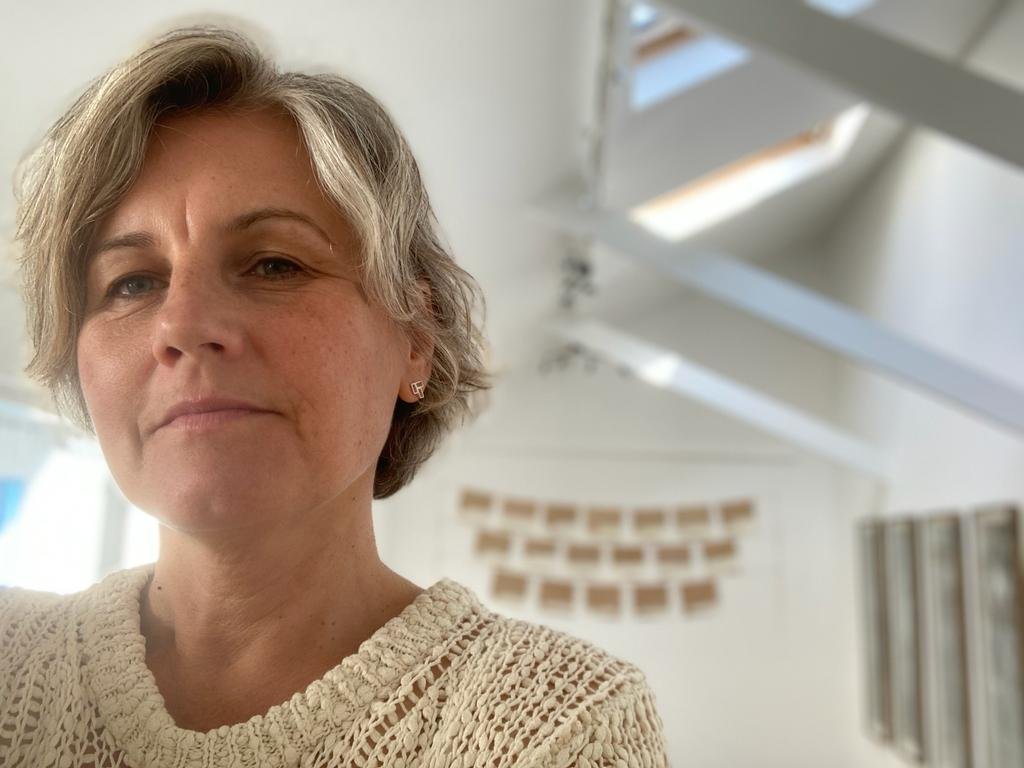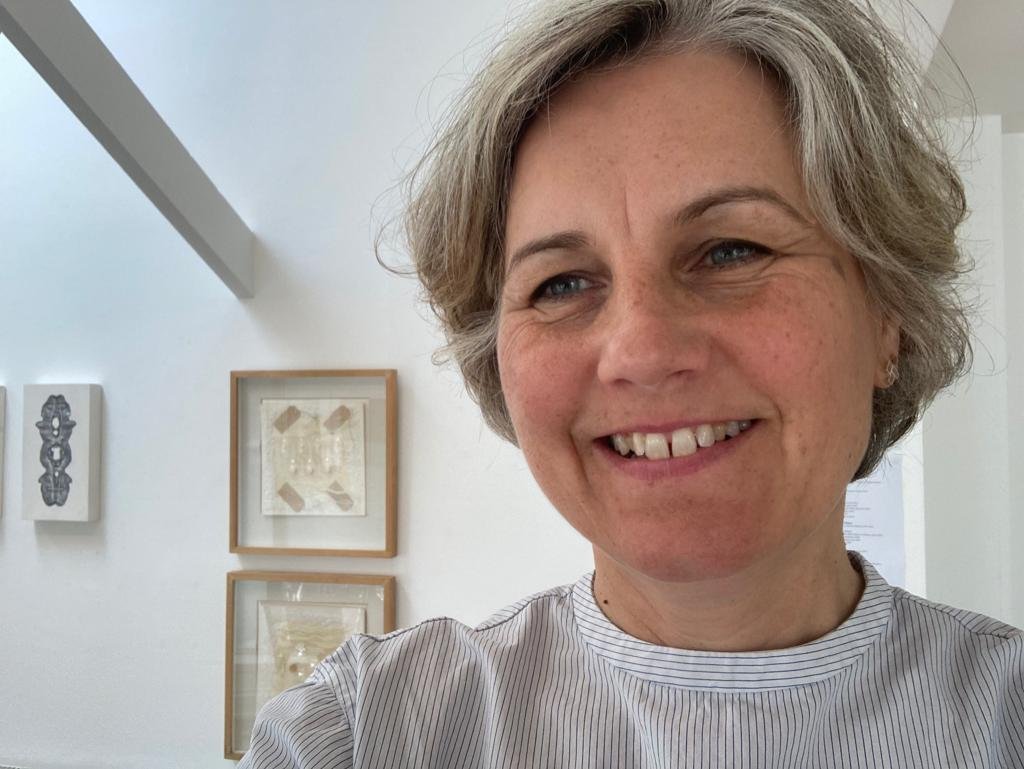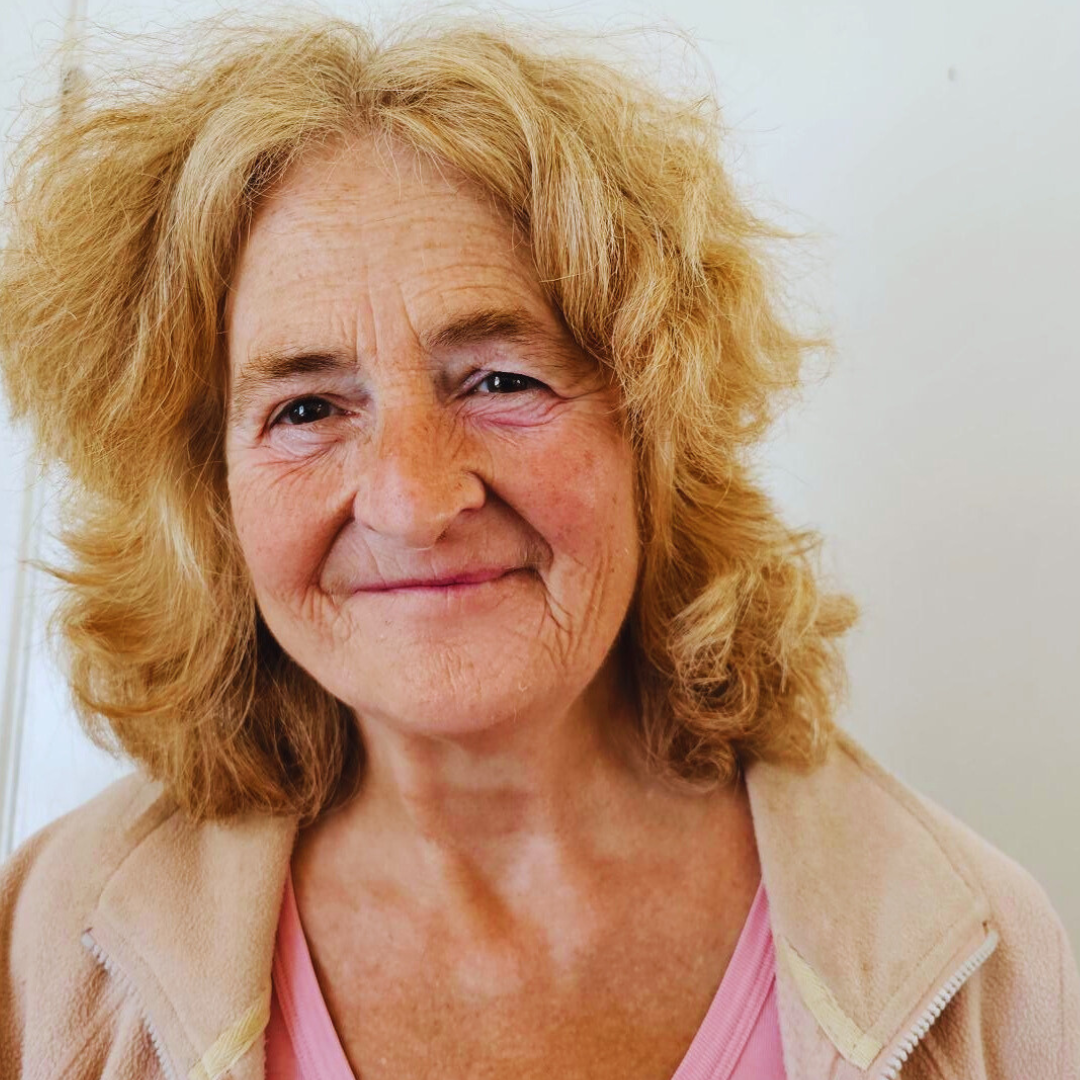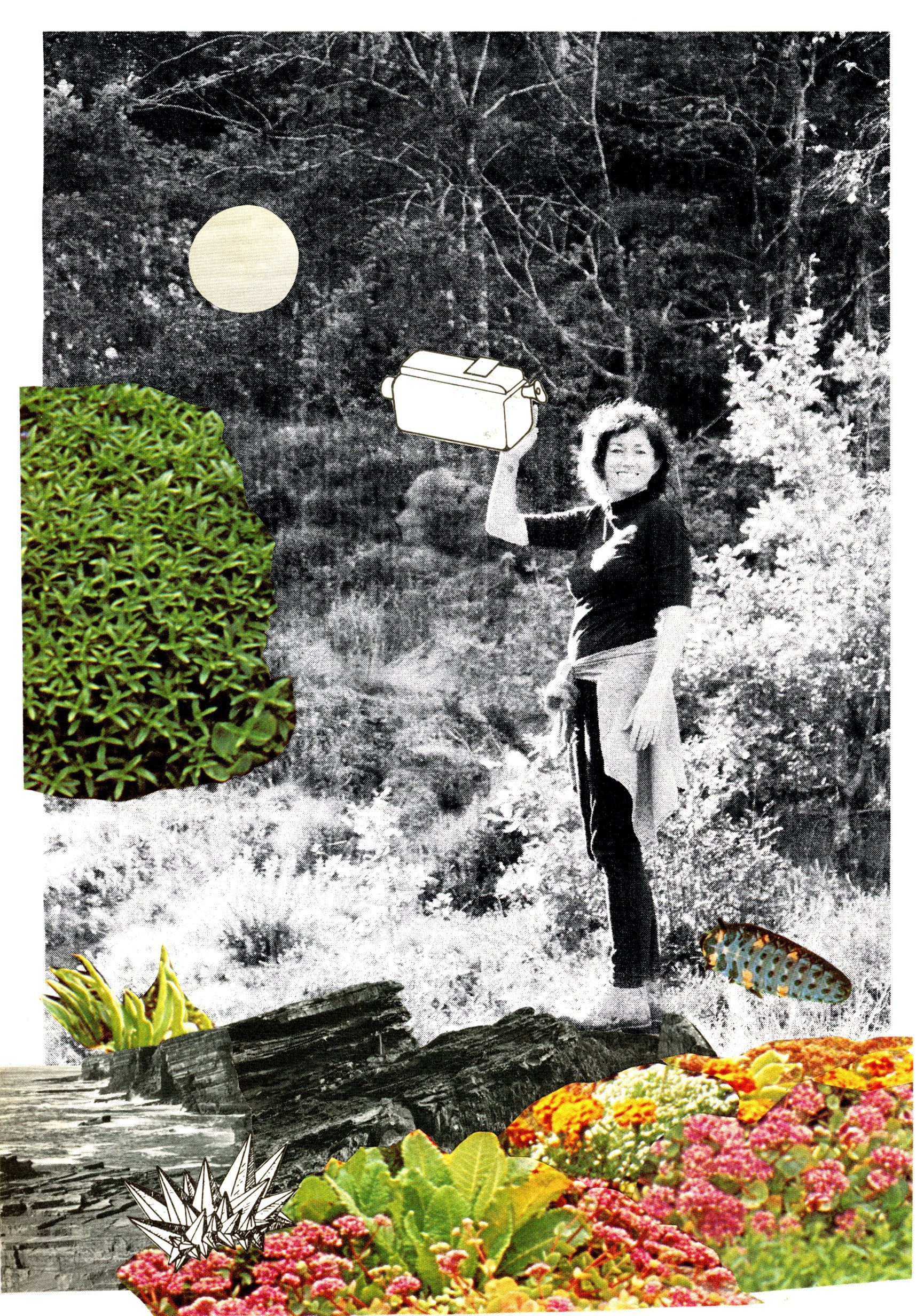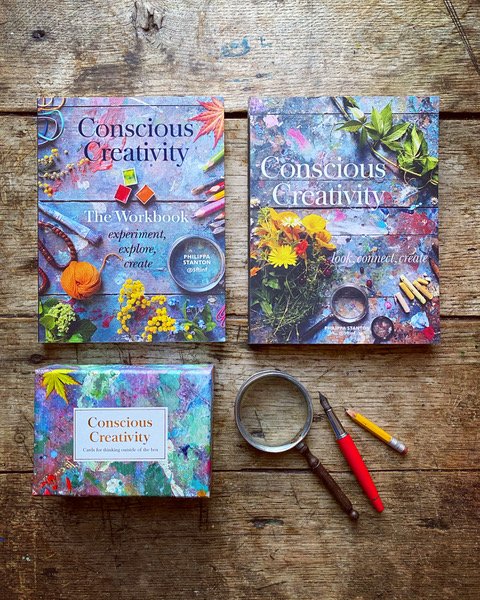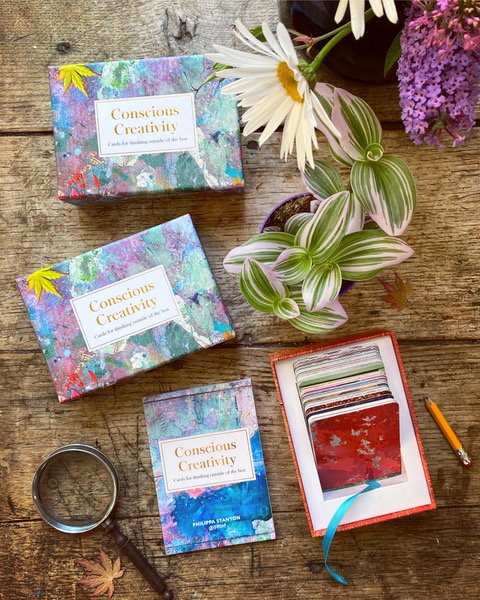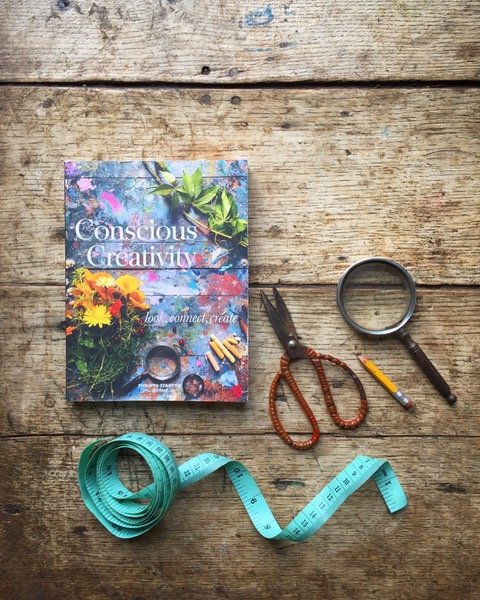Our September Woman of the Month is Kate Jones, owner of Daisy Laing Gallery - nominated as she gives so much to support the PZ community and artists. Recently she raised an outstanding sum at an art auction in aid of Mousehole Wild Bird Hospital, along with Tim Ridley.
Kate has run Daisy Laing Gallery and Vintage Studio in Penzance since 2012. Initially specialising in selling mid-century modern furniture and art, but just over six years ago started proactively programming art exhibitions to work alongside the vintage furniture.
Before ‘Daisy Laing' she worked as a TV/Film producer and always enjoyed collaborating with other creatives, supporting and facilitating them to tell their story and have their say. This informs the way she works with artists who show in the gallery today.
She says:
“Living in Penwith, I know lots of artists and back then there seemed to be limited opportunities for them to exhibit. The artists whose work I like and want to show wasn’t, and still isn’t generally, considered commercial enough for other galleries in this part of Cornwall, so I have been happy to step up. I think Daisy Laing Gallery has a reputation for showing work you don’t often get the opportunity to see in independent galleries in Cornwall.
I think the art world down here has changed a little bit since 2017 and a few more art spaces/galleries have popped up in Penzance which seem to be doing things a bit differently too, offering new opportunities for artists. Six years later I think the art scene seems more diverse and interesting for art lovers and artists inside and outside of Cornwall.”
1. What do you consider your greatest achievement?
Raising our beautiful daughter Martha, who was 18 in July, with my beloved husband Jamie.
2. What motivates you to do what you do?
My family. The desire to live in a kinder, fairer, more balanced world motivates me and I believe art can play a big role in this. I am passionate about the arts and what they bring to peoples’ worlds; how they can improve the quality of your life… A world without art and artists is not one I’d want to be part of.
I am aware, because I live in an amazing part of the world and do something I love, that I lead a very privileged life and I do feel very fortunate, especially as I have access to so many wonderful things going on, on my doorstep. I know though there are a lot of people who like art but don’t have much access to it or can’t access it or don’t know how to. Or simply they don’t think it is for them for one reason or another. This is something that motivates me too - trying to make art more accessible as I know it has the power to enrich lives - whether you’re looking at an amazing painting or taking part in an ink drawing workshop, art should be for all. I dislike the aloofness and elitism that often goes with the art world, it is so off putting. I do my best to try and make Daisy Laing Gallery feel like a welcoming and accessible space.
3. What do you owe your mother?
My mother encouraged me to go University and financially supported me whilst I was there. I am the only person in my immediate family to do a degree.
4. Which women inspire you and why?
So many women inspire me for so many reasons!
Famous women – Patti Smith, Jane Goodhall, Tracey Emin, Laurie Anderson, Malala Yousafzai, Siouxsie Sioux, and very sadly recently deceased Sinead O’Connor, Vivienne Westwood…. All incredibly brave, intelligent, talented, outspoken, funny, strong, trail blazers, activists, punks…
Women I know – some really good friends of mine, who are brilliant in so many ways and fundamentally very decent human beings, who haven’t had things laid on a plate for them; are always having to juggle things - family, work - so many things at once, as most women do but they don’t give up easily and keep on, keeping on.
My daughter inspires me everyday. She is kind, intelligent, beautiful and reassuringly insightful. I am very proud!
5. What are you reading?
I always have lots of books on the go and so I have piles of them lying around all over the house! I love reading and have a bad habit of starting something new before I finish something I already have on the go.
I regularly read poetry and love a good novel. I am a big fan of Hilary Mantel’s books, her writing is just exquisite. I was sad when I heard of her passing last year. This autumn I’m going to embark on ‘The Mirror and the Light’, which is another biggie, so might take me a while!
I am also very interested in non-fiction - art books and natural history, anything on the natural environment as I am also extremely passionate about nature and wildlife too. One I have had on the go for a long time, which I dip in and out of is ‘An Indifference of Birds’ by Richard Smyth.
I have also just finished reading an essay by Chimamanda Ngozi Adichie, ‘We should all be feminists’. I read this because Adichie is an amazing writer, not because I need to be persuaded to be a feminist! As she writes, the dictionary definition of a feminist: “a person who believes in the social, political and economic equality of the sexes.” We should all be feminists the world would be a much better place.
6. What gender barriers have you had to hurdle?
Like most women I imagine, I have had to deal with lots and still do, but not sure how many I’ve hurdled!
As a young girl at primary school, I was a real tomboy and a couple of my closest friends were boys. I think I felt like I was like them and could do all the things they could, and I didn’t feel the need to prove myself – I felt equal! But when I hit puberty (quite late) everything changed quite dramatically including my relationship with myself and towards boys, I started to see them as the opposite sex, and they did me! At secondary school, a mixed comprehensive, from what I can remember, the girls were generally smarter than most of the boys and so I certainly didn’t feel inadequate or inferior to any of them. Most of them to me and my friends - with the exception of a few - were just “annoying boys”!
I probably became more consciously aware of gender barriers when I had my first bar/waiting job whilst studying at sixth form college. Treatment of young women who worked in the establishment by some of the punters can only be described as inappropriate. I can remember sexist comments, come-ons, plus a few men making passes even! I remember feeling shocked but quickly developed a way of dealing with it but not really dealing with it, by laughing and shrugging it off! It’s hard to believe it now and it shocks me still, but I think back then, as a young woman, working in that environment, you kind of grew to expect this treatment. As far as I know, no-one ever challenged those creeps whilst I was working there. I certainly didn’t have the confidence or life skills at that point to know how to deal with it directly. It was a different era for sure. Sometimes I wish I could time travel and go back to those moments and confront those men. I’m sure it still goes on today but hopefully more is done to put a put a quick stop to this kind of behaviour. I really hope young women in the workplace feel more supported now.
Becoming a mother was a shock for me really. I had my daughter at 34 and my last job prior to having her was working as a TV producer in New York, so my world changed almost overnight, as it does for all new parents I guess. Suddenly I was a stay at home mum with a small child. Martha was 2 months premature as well and had spent 6 weeks in a neonatal unit prior to coming home and when she did I really struggled at first. This is still hard to admit, as before then I had always been a pretty competent person, but I felt really incompetent and inadequate actually at this time, possibly also because I hadn’t been able to go full term. Either way, I do know that as soon as you become a mother, even whilst you are pregnant, you suddenly become other peoples’ property! It feels like the rest of world thinks it has the right to judge you and whether you are doing your job properly or not. I knew I had no choice but to get on with motherhood for my own sake but mostly for the sake of my child. Failure to cope = failure as a mum. I did as best I could but did feel limited, stifled and overwhelmed in those early days. It wasn’t easy but guess I got there in the end and having a supportive partner helped me a lot.
I’ve also experienced gender barriers in my own family and wider social circle. Let’s just say I did grow into being a forthright woman with strong views and a tendency to be outspoken and stick up for myself and others, but this doesn’t always go down well as it’s not how women are supposed to behave.
Even now as a middle aged woman, infact, even more so as a middle aged woman, someone who runs a business, has a family, has led a life, I am aware of being frequently pigeon holed, judged, overlooked and not taken seriously. I regularly find myself having to speak out!
7. How can the world be made a better place for women?
Better education for all.
Governments and police forces all over the world need to make a serious stand and unite to stamp out all violence and discrimination against women. I’m talking zero tolerance. So many women all over the world are abused and mistreated every single day. It is of pandemic proportions and in my view a global emergency. I am so sad that this is our world is in the 21st Century.
I can’t bear to think about what it must be like for any woman of any age in Afghanistan right now - but all those girls, young women who can no longer attend school. There was so much progress being made before the Taliban returned. Ex-Prime Minister Gordon Brown has recently described what’s going on there as ‘Gender Apartheid’ and I think he is correct. How can governments stand by and let this happen? I understand there are activists like Malala Yousafzai working for charities doing their best to try and help and support women in Afghanistan and try and provide ways for them to continue their education - but it is clear that so much more needs to be done to help liberate these women.
8. Describe your perfect day?
Lie in (which means not being woken up in the early hours by my cat Tino for his first breakfast). It’s a sunny day, all the windows in the house are open and there’s a gentle warm sea breeze wafting in. The Herrings Gulls are on the rooftops as they should be, but aren’t being too raucous! My husband Jamie brings me a cup of tea in bed, Radio 6 is on softly in the background – I reach over and grab one of those books from a large pile of them next to my bed, which I either get engrossed in or I drop off back into a deep slumber! Either way I’m up late, shower and then out for a leisurely lunch somewhere within strolling distance with my husband and daughter, at one of our good local pubs or restaurants. I love The Bridge in Newlyn and the Old Coastguard in Mousehole. We walk after lunch back from Mousehole along the coastpath or on the prom from Newlyn, stopping off for a paddle and bit of rockpool looking not rockpooling (I have no wish to terrorise wildlife!). We sit on the beach and gaze in wonder at the immense beauty of the bay and do a bit of seabird spotting and maybe have a glass of wine or two from that bottle we picked up earlier and also bump into a few friends on the beach and have a drink and some laughs with them and a bit of a dip. By now it’s early evening and because I’m 52 and perimenopausal, I’m really tired, so we go home, have some snacks, maybe more vino and then it’s Netflix or an early night! Bliss.
9. We've noticed there really aren't many (if any) statues of women around Cornwall - who would you like to see remembered?
We have the wonderful statue of the Fisherman in Newlyn by local artist Tom Leaper, commemorating all those men who have sadly lost their lives at sea. I think there should also be one of a Fisherwife, who represents all those women who may have lost their husbands at sea and who have played vital roles in supporting their families and the fishing industry here for centuries.
Or another suggestion - one of the two sisters, Dorothy and Phyllis Yglesias, who set up the Mousehole Wild Bird Hospital in 1928. It’s so brilliant the hospital exists.
10. Give us a tip?
I know it’s an old cliché but it’s still a good tip - make sure to “stop and smell the roses”…








